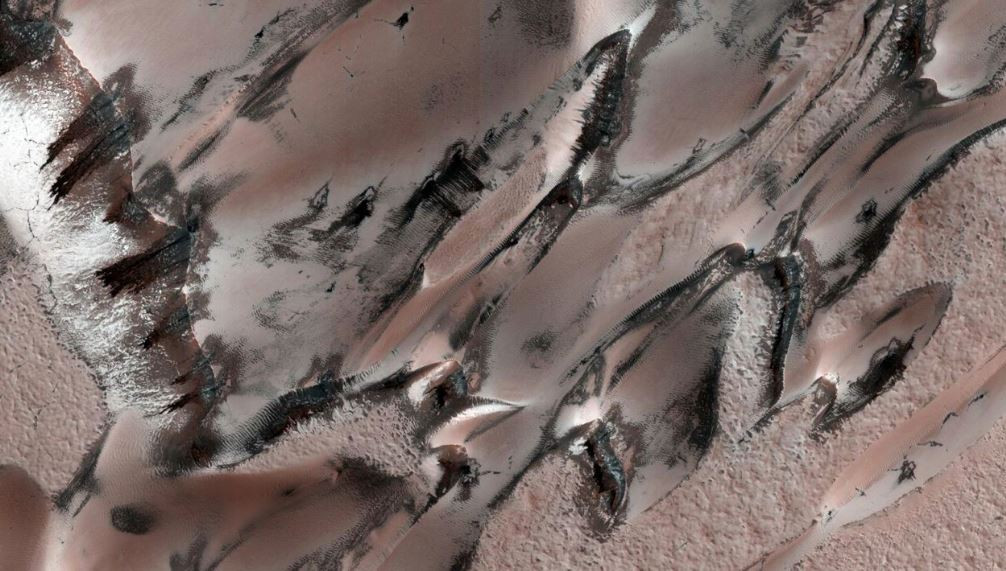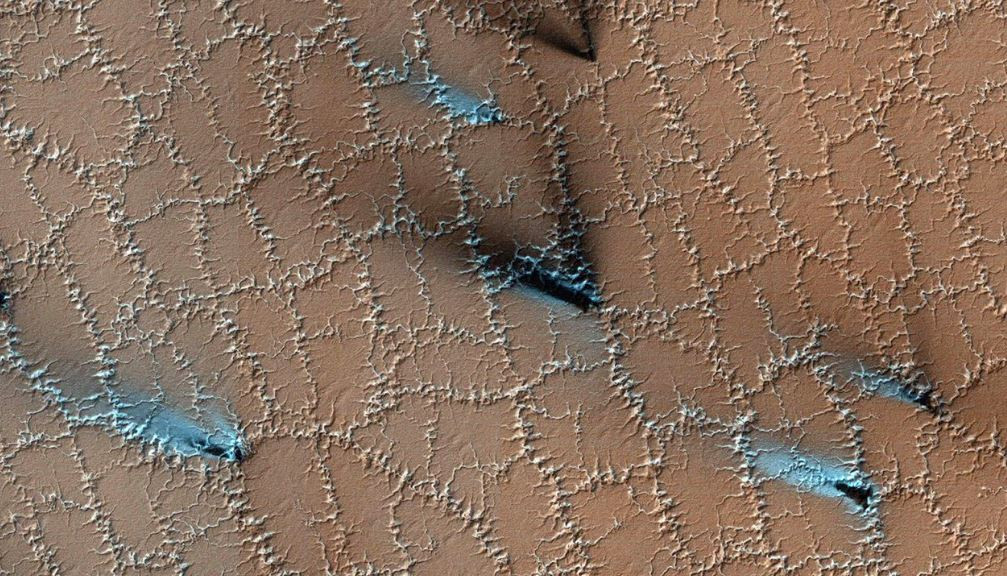Mars may be a dry and desolate place… However, according to new images shared by NASA, the red planet turns into a completely different wonderland in winter.
It’s now late winter in Mars’ Northern Hemisphere, where the Perseverance rover and Ingenuity helicopter discovered an ancient river delta that fed Jezero Crater billions of years ago. As always, dust, the main component of the planet, profoundly affects Martian weather. The winter months start with dust storms, but there are also snow, ice and frost events. At the poles of Mars, temperatures can drop to -123 degrees.

Two types of snow fall on Mars. The first is in the form of frozen ice crystals, as on Earth. Because of Mars’ thin atmosphere and sub-zero temperatures, this traditional snow goes straight from solid to gas before touching the ground.
Carbon dioxide ice, also called dry ice, can be seen inside craters on Mars during the winter months. This type of snow can descend to the surface and cover it. In the polar regions, a layer of snow can form up to one meter.

No orbiter or surveyor has ever seen snow falling on the red planet because snow only occurs at night at the poles under cloud cover. Orbiting cameras can’t look behind clouds, and no surveyor is robust enough to withstand the freezing temperatures at the poles.
However, instruments aboard the Mars Reconnaissance Orbiter orbiter can detect light invisible to the human eye and have detected carbon dioxide snow falling on the Martian poles. The Phoenix lander, which landed on Mars in 2008, also used one of its laser instruments to detect water ice snow from a point about 1,609 kilometers from Mars’ north pole.
